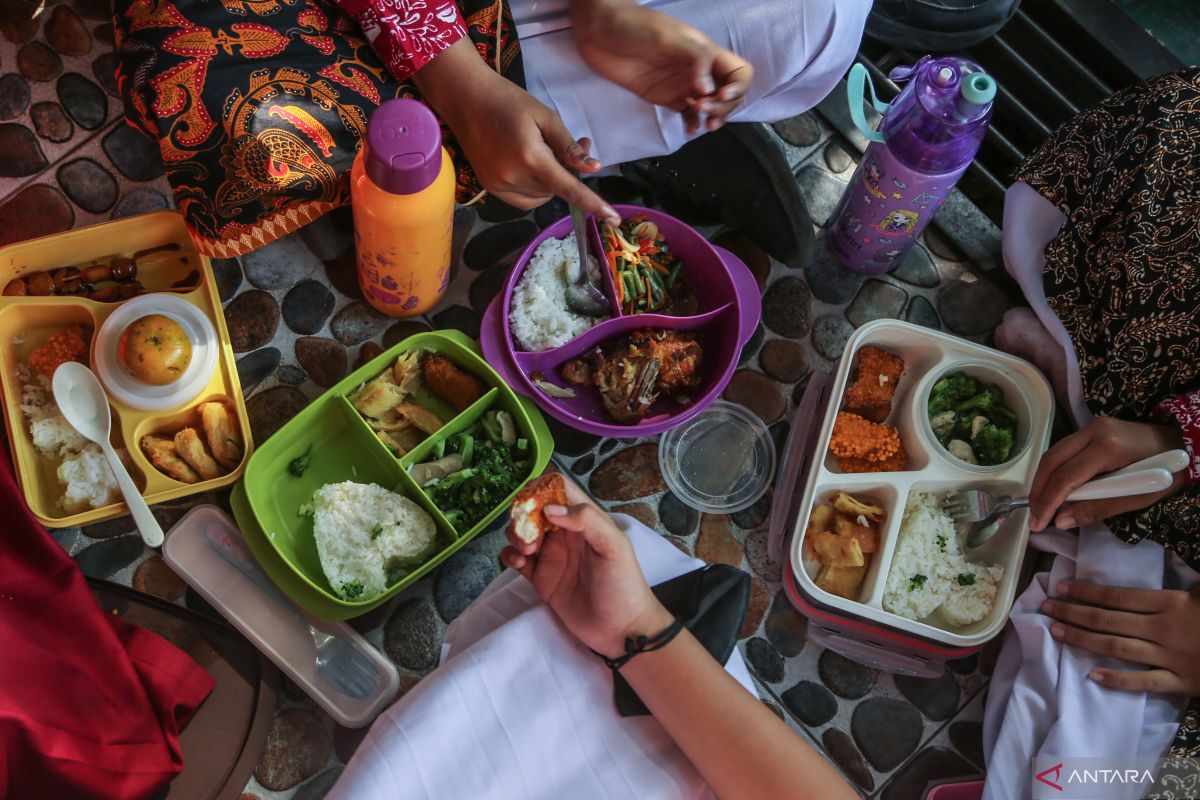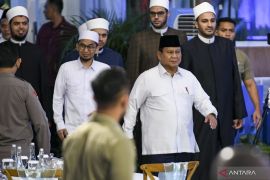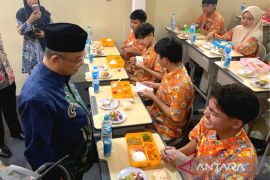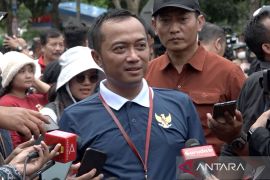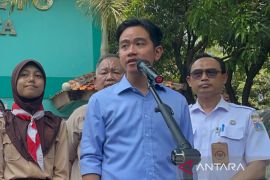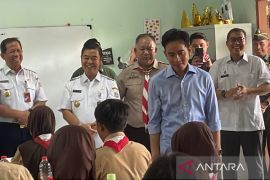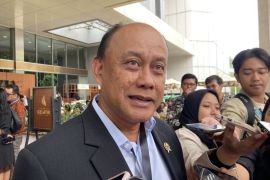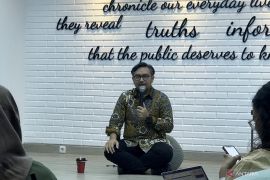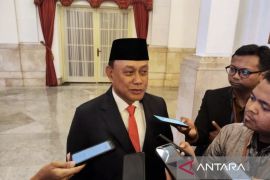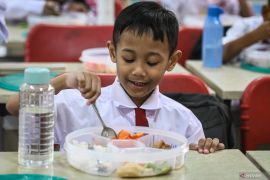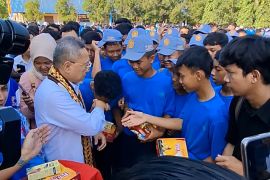It seems that it would not take long to realize the pair's program by including it in the Government Work Plan (RKP).
Prabowo-Gibran have, so far, garnered the most number of votes from the 2024 election day, based on the General Elections Commission's vote recapitulation temporary result.
However, some accusations were levelled that the free lunch program was only initiated to benefit certain parties.
Before the program, there was a successful example of the implementation of the government's free lunch program.
The program was started by the National Food Agency (Bapanas) in 2023, namely the Diverse, Nutritious, Balanced, and Safe (B2SA) Villages.
Through the B2SA program, the government provides education on nutritional food consumption to the community and drives the surrounding economy in addition to empowering them.
One of the activities carried out in the B2SA program is free lunch for the beneficiaries comprising stunted and malnourished children, soon-to-be married women, pregnant women, and breastfeeding mothers.
The lunch is distributed to the beneficiaries at the food house. Initially, there were 40 beneficiaries in each B2SA village.
A unique aspect about the B2SA Village program is that the menu is prepared by Family Welfare Empowerment (PKK) cadres and assistants.
The menus prepared are adjusted to the local food potential.
The PKK cadres have been mentored to arrange a menu that meets the principles of balanced nutrition, replete with sources of carbohydrates, vitamins, and minerals.
Indonesians were earlier accustomed to the "Four Healthy Five Perfect Food" jargon and then the "What is in my Plate" campaign promoted by the Health Ministry, and now, the concept of B2SA is gaining traction.
A menu meeting the B2SA requirements consists of one-third of a source of staple carbohydrate, such as rice, corn, cassava, potatoes, sweet potatoes, and sorghum.
Next is one-third of vegetables, one-sixth of fruits, and one-sixth of side dishes that are proteins. With such a diet, children and pregnant women will meet their daily nutritional needs.
Bapanas' Director of Food Diversity and Consumption, Rinna Syawal, stated that in each B2SA Village, there are 25 PKK cadres who have been taught to prepare menus with balanced nutritional meals, which are, for example, carbohydrates with proteins or vegetables.
The healthy meal will be given to the beneficiaries 36 times in one program period.
The beneficiaries' progress will be monitored to determine the impact of the program. This aims to see the impact of B2SA meals on the community.
The free meal program's impact will be measured on the beneficiaries' weight, height, and arm circumference.
B2SA Village
The B2SA Village started running in mid-2023. For the initial stage, the program targeted as many as 75 villages in the country.
The villages are those with high prevalence of stunting or those with lack of food security.
The program is also prioritized for regions with village officials that show a commitment to run the program, have an active PKK team, and preferably active village-owned enterprises (BUMDes).
Three components in the B2SA Village are the B2SA Food Terrace, the B2SA Food Outlet, and the B2SA Food House.
The B2SA Food Terrace promotes the aspects of food availability, where the community is encouraged to use land to grow food crops, vegetables, and tubers as well as cultivate protein sources, such as poultry and fish.
Unlike the Sustainable Food Yard (P2L) program that is oriented towards increasing good production, the Food Terrace focuses on fulfilling food security.
Meanwhile, the B2SA Food Outlet is about food affordability. Food outlets work with BUMDes to provide affordable food items that can be purchased by locals, such as cooking oil, sugar, and rice.
Crops from the Food Terrace program can also be sold at the food outlets.
Furthermore, the B2SA Food House is about the utilization aspect.
Food houses are all about menu preparation and food processing, consumption, and public education.
The PKK will educate the public about balanced nutrition and healthy consumption behavior.
Each village gets a budget allocation of Rp75 million (US$7,550) to run the B2SA program.
The purpose of the program is not only to produce a healthy, active, and productive generation but also to decrease the stunting prevalence and food insecurity as well as to change people's behavior to consume a nutritionally balanced diet.
Meanwhile, Prabowo-Gibran's free lunch program, which is promised to start in 2025, is expected to help meet students' nutritional needs and also drive the economy and empower local communities.
With a budget allocation of Rp15 thousand per student, the program will provide a sort of welfare to the grassroots communities.
Related news: Government discusses free lunch program for continuity: Minister
Related news: Government discusses free lunch program for continuity: Minister
Translator: Indriani, Kenzu
Editor: Tia Mutiasari
Copyright © ANTARA 2024
